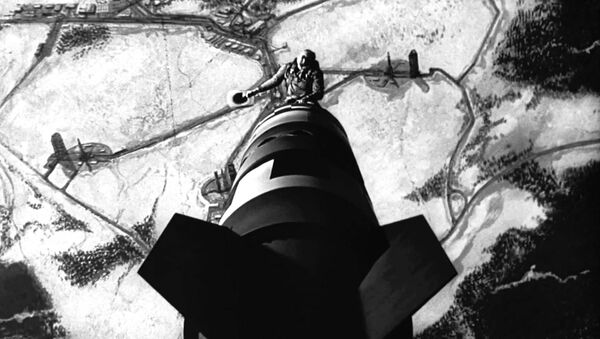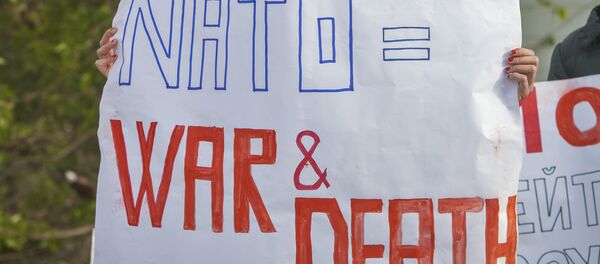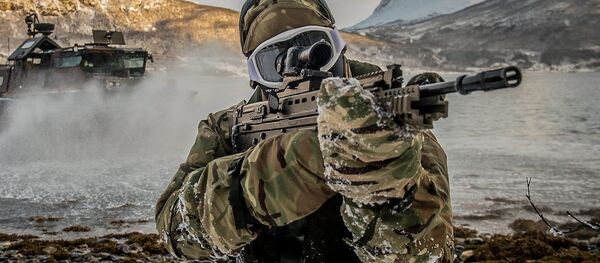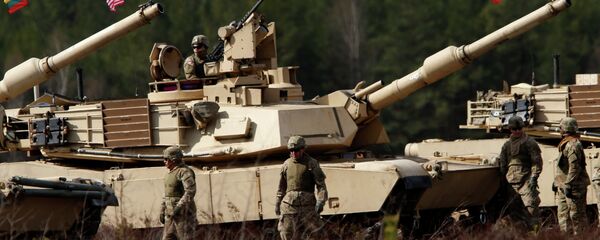On Sunday, NATO forces were forced to close an exhibition of military vehicles ahead of the Victory Day holiday in the central square of Moldova's capital of Chisinau, and to retreat to a small town outside the city after opposition activists gathered to protest their presence.
‘NATO hardware in Moldova – cynical attempt to distort past for political purposes’ (Op-Ed) https://t.co/dscqnplmm7 pic.twitter.com/UDoewwDhgm
— RT (@RT_com) 9 мая 2016 г.
Activists waved banners reading "NATO = War & Death", "Moldova is a Neutral Country," "Stop NATO Bases," "We Don't Need NATO," and "Go Home," and handed out St. George ribbons, a symbol of WWII victory in some countries of the former USSR, to US troops who were present at the exhibition.
"Moldova is a peaceful, neutral state. We are not involved in military blocs and don't want war. We saw what happened in Yugoslavia, Libya and Syria. If you don't get out of here before tomorrow [May 9], there will be thousands of us here," said Socialist Party MP Vladimir Batrynchi, as cited by Russian media.
Commenting on the dustup, Russia's Svobodnaya Pressa online newspaper suggested that the protesters' small victory was interesting precisely because it occurred despite the Moldovan government's generally anti-Russian and pro-EU/pro-Washington course, indicating that significant numbers of Moldovans, just like people in many other countries, continue to view the North Atlantic Alliance as a threat, rather than a source of security in the world.
Speaking to the newspaper, Alexei Anpilogov, the director of the historical research fund 'Osnovanie', recalled that "in its own time, just after NATO was founded, the Soviet leadership made a very correct move – proposing that the alliance accept the USSR as a member. Having rejected the proposal, the alliance's leaders were effectively forced to endorse the idea that the alliance was not created in order to maintain global security, but for the confrontation with the USSR, that is, with historical Russia."
"And it must be said that the alliance's leaders did not make any great mystery out of this. It's sufficient to recall the famous speeches made by Churchill, Truman, and other politicians. At the same time, at the beginning they had said that the alliance was meant to confront the Soviet Union and the entire Soviet bloc for ideological reasons."
"However," Anpilogov added, "when Russia deliberately abandoned its Soviet ideology, dissolved the Warsaw Pact and the USSR itself, nothing changed. Our politicians struggled with all their might to integrate into the Western world. NATO really could have built a strong partnership with Russia, which had officially renounced communism, and any other ideology in fact. We were given verbal promises at the time that there would be no NATO expansion into Eastern Europe, much less into the post-Soviet space."
"And in this situation, the hope lies not on the elites of Eastern Europe, which are largely controlled by Western ones, but on the politically active part of their populations. Citizens of these countries are aware, to a large extent, that they and their territories will be used by NATO for its own interests, for the confrontation with Russia."
Fortunately, Anpilogov notes, in a world of guaranteed nuclear destruction, no one will dare to unleash a large war with Russia. However, "economic confrontation, hybrid wars, and many other forms of confrontation may be used. In any case, the populations of the countries which border Russia will only suffer as a result. Just look at the example of Ukraine, where the latent confrontation between Russia and the US has led to endless victims, economic collapse, and chaos in entire regions of the country."
"Of course, the residents of Moldova do not want such a fate, and part of the population which has not yet been brainwashed by propaganda is doing everything it can to try to preserve the neutral status of their state."
"Today, we have a very similar situation to the one that existed in the second half of the 19th century and the early 20th century. We cannot say that Russia's ideology and the ideologies of Europe or America were very different [at the time]. However, an explicit confrontation manifested itself between Britain and Russia. And today, the West will resist any attempt by Russia to unify the Eurasian space."
In any case, Anpilogov noted, as in the late 19th century, Russia's ideology today does not differ significantly from those of contemporary Europe or the United States (and includes democracy, free markets, etc.). Nevertheless, "any major power which is involved in international politics must sooner or later develop an ideology or geopolitical concept of its own." Russia, the analyst suggests, can contrast Western hawks' attempts to build a unified, Western-dominated world order through the idea of an "equitable coexistence."
"By the way, if this or a similar ideology is not put forward by Russia, it will likely be taken up by China," the analyst concludes.




